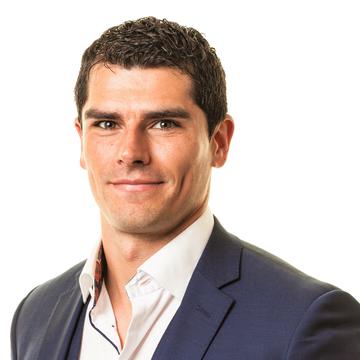September 2021 - Dr Luke Kemp - Centre for the Study of Existential Risk (CSER)
Divesting from Global Catastrophe
“Global Warming’s Terrifying New Math”. That was the title of an influential article published by prominent environmentalist Bill McKibben in the July edition of Rolling Stone in 2012. In it, McKibben outlines the gross mismatch between fossil fuel reserves and how much can be burnt to limit warming to 2°C. The former is 2,795 Gigatonnes, almost five times the 2°C carbon budget of 535 Gigatonnes (for an 80% chance of limiting warming to 2°C).
McKibben’s solution of ‘carbon divestment’ involves the deliberate sale of shares, bonds and other financial instruments in socially damaging companies. It is a strategy with a long history. Divestment campaigns have now targeted the Apartheid regime, tobacco companies, arms companies, nuclear weapons (the ‘Don’t Bank on the Bomb Campaign’ and fossil fuels (‘Fossil Free’ campaign) companies. For climate change it has spread like wildfire. Since 2012, 350 institutions have pledged to divest USD$1.5 trillion in assets.
The goal of such actions is not to financially injure socially damaging industries. Indeed, research suggests that this hasn’t occurred for arms, tobacco and gambling. Instead, it is to fray the social license and acceptability of these companies and leave them liable to regulation. The evidence to date suggests that such an approach does not create financial losses for the investor, whether it be from divesting from fossil fuels or taking a wider ethical investment filter.
Now, many are going beyond simple divestment to responsible investment: an approach that acknowledges the importance of environmental, social and governance issues as well as the long-term resilience of the world. It is not simply about divesting from ‘sin stocks’ but actively managing a portfolio to promote a global, social good. Such an approach is a leverage point for both institutional investors as well as firms with any kind of portfolio.
In a tightly linked globalised world there is no such thing as an externality. As Dr Ellen Quigley at the University of Cambridge has highlighted, large asset owners (‘universal owners’) such as universities, pensions funds, insurance companies and sovereign wealth funds all have a great stake in the health of the entire economic system. They cannot diversify away from systemic risk. For the worst risks, this applies to all corporations. The continued existence of firms depends on having functioning markets and demand. A sufficiently large catastrophe is compatible with neither corporate growth nor existence.
The case for responsible investment is a case for investors to take seriously a range of global catastrophic threats. Climate change is one among a host of risks that profoundly global society. The same reasons for addressing climate change for companies and investors —avoiding reputational risk, protecting their long-term survival, and evading regulatory risks— apply to a suite of other threats, such as nuclear weapons systems and lethal autonomous weapons.
The global risk supply chain is a concentrated one. For climate change, 100 companies account for 71% of industrial sector emissions. For nuclear weapons systems, their creation and maintenance are overseen by fewer than 30 private companies. The development of lethal autonomous weapons (also known as ‘killer robots’, or ‘slaughterbots’) is dominated by 5 national militaries aided by 30 high-risk companies with no clear policy on how to ensure human control over such dangerous weaponry. This clustered nature of the production of global catastrophe is an opportunity for responsible corporate investment. For asset managers and corporations, it should make the practice of shifting finance away from risk producers not just desirable, but practical.
Finance frequently follows political power. Innovative ways of democratising the boards of companies could provide an impetus to move towards responsible investment practices. This includes basic steps such as expanding boards to include a wider number of stakeholders, including average citizens, and providing more space for genuine deliberation. More deep changes could be corporations adopting co-determination in which workers get to vote for representatives on the board of directors, or a corporate benefit model in which companies adopt environmental and social goals alongside financial ones.
The rationale behind all of these is simple: deliberative democracy and using a lottery process to bring citizens into political power has been repeatedly shown to be a promising form of decision-making in theory and practice. When it comes to global risks surveys suggest that average citizens are risk adverse. These findings are buttressed by experiments with allowing citizen assemblies to develop climate policy, such as the 2020 French Citizens Convention for Climate, which have led to (sadly unadopted) thoughtful and effective policy packages. Turning corporate governance into a deliberative democracy is one way of ensuring responsible investment for both current and emerging global risks. Changing investment practices should start with changing decision-making.
There is a mounting case for both asset managers and firms to move their finance away fossil fuel industry and power rapid decarbonisation. A closer look suggests that the same logic applies to global risks beyond climate change. There are not only compelling reasons for carbon divestment, but for responsible investment to be implemented democratically to address all global risks.
Dr Luke Kemp is a Research Associate at the Centre for the Study of Existential Risk (CSER) at the University of Cambridge. He focuses on how we can foresee and govern global risks and emerging technologies. He has advised the Australian Parliament on ratifying the 2015 Paris Agreement on climate change and has a decade of experience in international negotiations. His research has been covered by media outlets such as the New York Times, the BBC and the New Yorker. He holds a Doctorate in International Relations from the Australian National University where he is an honourary lecturer.

